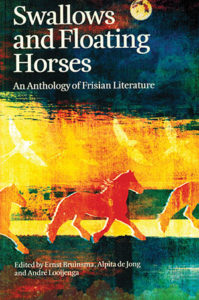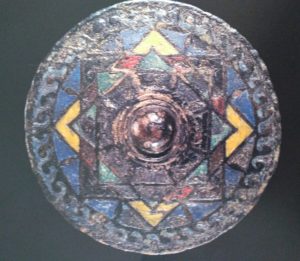Last year the first English anthology of Frisian literature was published: Swallows and Floating Horses. This publication forms a perfect match with As Long as the Tree Blooms (WLT, Jan. 2019). Where the latter is a concise, colorful, and illustrated introductory history of Frisian literature, Swallows offers a more detailed approach that includes excerpts of texts with a translation in English, accompanied by essential information for sufficient context. An eight-page introduction provides the historical framework. The book contains a selection of around 140 entries in a compact layout.

The first entry starts with the arrival of English missionaries and offers an excerpt of the biography of Liudger, the first missionary bishop of ethnic Frisian origin. He miraculously cured the blind Frisian singer Bernlef (ca. 800), “who was dearly loved by his neighbours . . . for his skill in reciting their ancestors’ deeds and their kings’ feats of arms to the music of the harp.” The last entry presents a poem by a RIXT-poet, Elmar Kuiper (b. 1969). He cries out about the deadened agro-industrial modern Frisian landscape: “when the lapwing / on my land shrieks eek-eek at the sight / of her ruined nest, where my godwit weeps / like a blind poet, sick with yearning.”




